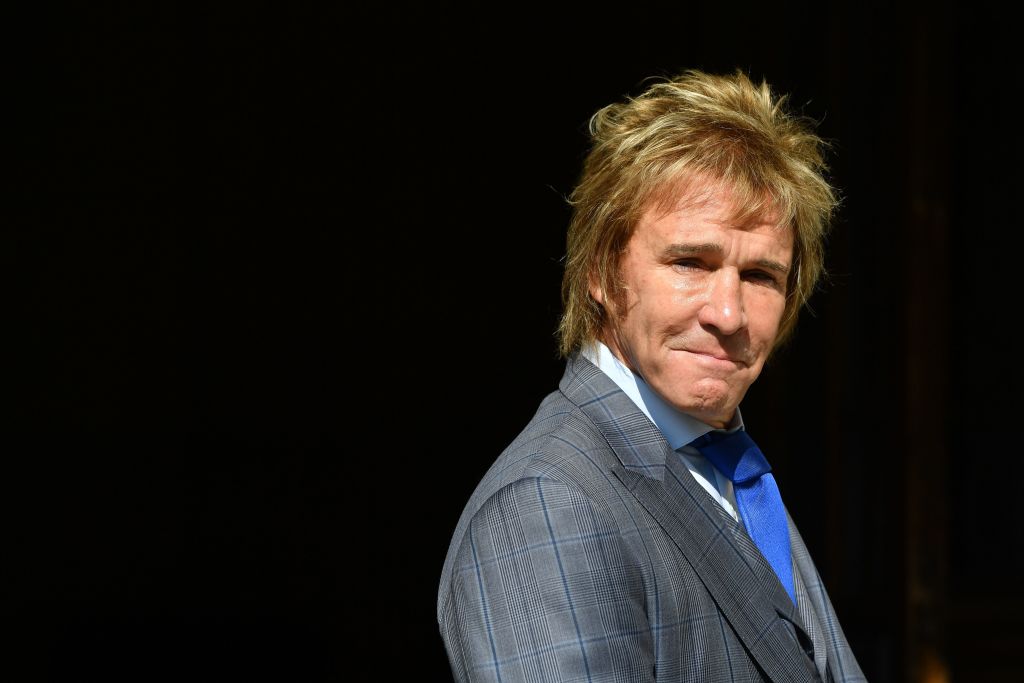Charlie Mullins: Britain’s richest plumber launches a new venture
Plumbing tycoon and businessman Charlie Mullins aims to become the "Harrods of the handyman world".


Get the latest financial news, insights and expert analysis from our award-winning MoneyWeek team, to help you understand what really matters when it comes to your finances.
You are now subscribed
Your newsletter sign-up was successful
Want to add more newsletters?

Twice daily
MoneyWeek
Get the latest financial news, insights and expert analysis from our award-winning MoneyWeek team, to help you understand what really matters when it comes to your finances.

Four times a week
Look After My Bills
Sign up to our free money-saving newsletter, filled with the latest news and expert advice to help you find the best tips and deals for managing your bills. Start saving today!
Charlie Mullins’ father worked in a toy car factory. His mother cleaned homes. Today, Mullins, 71, lives in a £10 million London penthouse with a view of the Thames, say Sabah Meddings and Michael Sasso on Bloomberg.
He can credit his “dazzling rise to the unlikely intersection of high finance and blue-collar labour”. Mullins left school at 15 with no qualifications and became an apprentice to a plumber. Over four decades, he built a successful firm, Pimlico Plumbers, that sought to improve the industry’s reputation for poor service.
Smartly dressed workers in clean vans would turn up promptly, for a premium price. In the year ending May 2021, Pimlico reported £49.2 million in revenue, distributing £3.2 million to Mullins in dividends. He sold out at the end of 2021 to Wall Street giant KKR for £140 million. Mullins now says he regrets selling.
MoneyWeek
Subscribe to MoneyWeek today and get your first six magazine issues absolutely FREE

Sign up to Money Morning
Don't miss the latest investment and personal finances news, market analysis, plus money-saving tips with our free twice-daily newsletter
Don't miss the latest investment and personal finances news, market analysis, plus money-saving tips with our free twice-daily newsletter
Sales have declined since the acquisition, a son and grandson have quit in frustration and Mullins says he hears complaints about service from customers who assume he’s still in charge. The American buyers lack the personal touch associated with smaller, British companies, he says, and so he is now planning to go “head to head with his former empire” by setting up a new company, says Lucy Burton in The Telegraph.
WeFix will be trading when a non-compete clause agreed with Pimlico’s new owners ends this September. A fleet of distinctive vans is ready to be rolled out, and the plan is for the venture to repeat Mullin’s initial success and become the “Harrods of the handyman world”. Mullins, who has become a celebrity thanks to his rock-star looks and conservative commentary for the media, affirms there will be no “working from home” at WeFix. At Pimlico, he forbade workers to use their smartphones and is known for his no-nonsense approach.
Workers at WeFix will, however, get a share of the profits after a year’s service. While most rich founders mumble about making a difference, Mullins is straightforward about what gets him out of bed in the morning, says Lucy Tobin on This Is Money. “Money motivates me,” he says. “Become an apprentice plumber and you’ll never run out of work, and you’ll earn loads of money.” It’s a strategy that’s worked, and he’s sticking with it.
This article was first published in MoneyWeek's magazine. Enjoy exclusive early access to news, opinion and analysis from our team of financial experts with a MoneyWeek subscription.
Get the latest financial news, insights and expert analysis from our award-winning MoneyWeek team, to help you understand what really matters when it comes to your finances.

Stuart graduated from the University of Leeds with an honours degree in biochemistry and molecular biology, and from Bath Spa University College with a postgraduate diploma in creative writing.
He started his career in journalism working on newspapers and magazines for the medical profession before joining MoneyWeek shortly after its first issue appeared in November 2000. He has worked for the magazine ever since, and is now the comment editor.
He has long had an interest in political economy and philosophy and writes occasional think pieces on this theme for the magazine, as well as a weekly round up of the best blogs in finance.
His work has appeared in The Lancet and The Idler and in numerous other small-press and online publications.
-
 How a ‘great view’ from your home can boost its value by 35%
How a ‘great view’ from your home can boost its value by 35%A house that comes with a picturesque backdrop could add tens of thousands of pounds to its asking price – but how does each region compare?
-
 What is a care fees annuity and how much does it cost?
What is a care fees annuity and how much does it cost?How we will be cared for in our later years – and how much we are willing to pay for it – are conversations best had as early as possible. One option to cover the cost is a care fees annuity. We look at the pros and cons.
-
 "Botched" Brexit: should Britain rejoin the EU?
"Botched" Brexit: should Britain rejoin the EU?Brexit did not go perfectly nor disastrously. It’s not worth continuing the fight over the issue, says Julian Jessop
-
 Ayatollah Ali Khamenei: Iran’s underestimated chief cleric
Ayatollah Ali Khamenei: Iran’s underestimated chief clericAyatollah Ali Khamenei is the Iranian regime’s great survivor portraying himself as a humble religious man while presiding over an international business empire
-
 'AI is the real deal – it will change our world in more ways than we can imagine'
'AI is the real deal – it will change our world in more ways than we can imagine'Interview Rob Arnott of Research Affiliates talks to Andrew Van Sickle about the AI bubble, the impact of tariffs on inflation and the outlook for gold and China
-
 Tony Blair's terrible legacy sees Britain still suffering
Tony Blair's terrible legacy sees Britain still sufferingOpinion Max King highlights ten ways in which Tony Blair's government sowed the seeds of Britain’s subsequent poor performance and many of its current problems
-
 How a dovish Federal Reserve could affect you
How a dovish Federal Reserve could affect youTrump’s pick for the US Federal Reserve is not so much of a yes-man as his rival, but interest rates will still come down quickly, says Cris Sholto Heaton
-
 New Federal Reserve chair Kevin Warsh has his work cut out
New Federal Reserve chair Kevin Warsh has his work cut outOpinion Kevin Warsh must make it clear that he, not Trump, is in charge at the Fed. If he doesn't, the US dollar and Treasury bills sell-off will start all over again
-
 How Canada's Mark Carney is taking on Donald Trump
How Canada's Mark Carney is taking on Donald TrumpCanada has been in Donald Trump’s crosshairs ever since he took power and, under PM Mark Carney, is seeking strategies to cope and thrive. How’s he doing?
-
 Long live Dollyism! Why Dolly Parton is an example to us all
Long live Dollyism! Why Dolly Parton is an example to us allDolly Parton has a good brain for business and a talent for avoiding politics and navigating the culture wars. We could do worse than follow her example